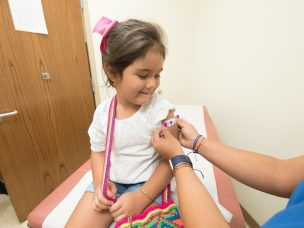Pediatrics
Epigenetic Variance and Childhood Obesity Disparities
A study on childhood obesity highlights significant epigenetic differences between European American and African American children, shedding light on the diverse gene regulation associated with obesity. Childhood obesity is a significant problem globally. Epidemiological data from 2016 suggest that there are 340 million obese children and adolescents. Though childhood obesity appears to have peaked, its...
Assessing Respiratory Syncytial Virus Lower Respiratory Tract Infection Case Definitions
In a comprehensive study spanning eight countries and involving 2401 children over 2 years, four clinical case definitions for respiratory syncytial virus lower respiratory tract infection were evaluated against the World Health Organization’s 2015 criteria. Respiratory syncytial virus lower respiratory tract infection (RSV–LRTI) poses a significant threat to young children globally, with varied diagnostic criteria...
Long-Term Effects of Cranial Radiotherapy in Pediatric Leukemia and Lymphoma Survivors
Significant metabolic and endocrine disturbances have been found in survivors of childhood-onset acute lymphoblastic leukemia or aggressive non-Hodgkin’s lymphoma treated with cranial radiotherapy. A recent meta-analysis emphasizes monitoring for potential long-term complications in these patients. Childhood-onset and cranial radiotherapy-treated acute lymphoblastic leukemia or aggressive non-Hodgkin’s lymphoma survivors are more likely to have reduced height, precocious...
Flu Shots Up for Children in States With Vaccine Mandate
Those living in a state with a vaccine mandate during 2020 to 2021 flu season had higher probability of receiving flu shot Children living in states with a vaccine mandate during the 2020 to 2021 influenza season had a higher predicted probability of receiving an influenza vaccine, according to a study published online Oct. 10...
Causes of Delayed Hodgkin Lymphoma Diagnosis in Children
A recent study found that rural residence and certain tumor types, such as Hodgkin lymphoma, are among the leading causes of delayed cancer diagnosis in children. Delayed cancer diagnosis in children is a significant global health problem. Moreover, in its early stages, cancer symptoms are non-specific. This risk of delayed diagnosis is exceptionally high in...
Wastewater-Based Surveillance of Respiratory Syncytial Virus and Pediatric Influenza-Like Illness Rates
A recent study explored the correlation between respiratory syncytial virus levels in wastewater and influenza-like illness rates. The emergence of the COVID-19 pandemic has spurred advancements in wastewater-based surveillance (WBS) of respiratory pathogens, offering potential applications in public health surveillance. This study, conducted in Larissa, Central Greece, assessed the benefits of monitoring respiratory syncytial virus...
Advancements in Hodgkin Lymphoma Treatment and Improved Survival Rates
With the development of more potent treatment options, the survival rate for Hodgkin lymphoma has increased over time. Treatment options for children with Hodgkin lymphoma (HL) have changed dramatically over the years, mainly as a result of developments in radiation therapy (RT) and chemotherapy (ChT). In the past, both children and adults received the same...
Efficacy and Tolerability of Xyloglucan and Pea Protein in Atopic Dermatitis
Topical treatment containing xyloglucan and pea protein was found to be a safe and effective steroid-sparing alternative for children with atopic dermatitis in a recent study. Atopic dermatitis (AD) is a chronic inflammatory skin condition primarily affecting children. Topical corticosteroids are the main treatment used to control skin inflammation and flare-ups in the pediatric population...
Efficacy and Safety of Dupilumab in Children With Severe Atopic Dermatitis
A phase III trial found that long-term dupilumab treatment demonstrated acceptable safety and sustained efficacy in children aged 6–11 years with severe atopic dermatitis. Atopic dermatitis (AD) is the most prevalent inflammatory skin disease in children. Treatment options are limited in children aged 6–11 years with severe AD inadequately controlled by topical therapies. Dupilumab has...
More Medical News














